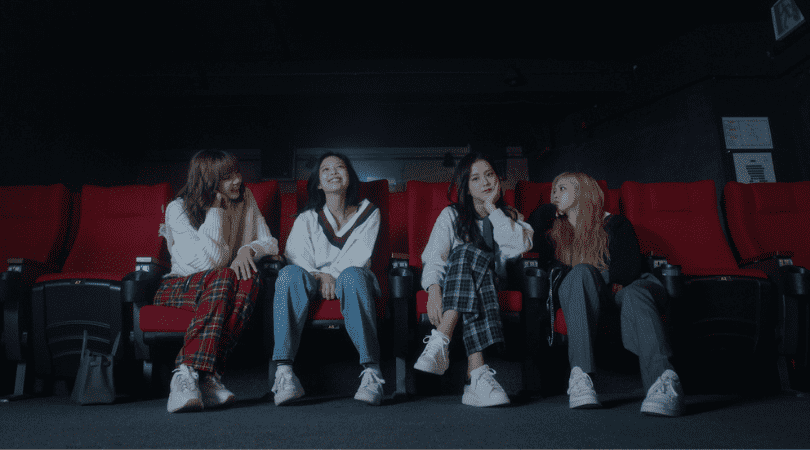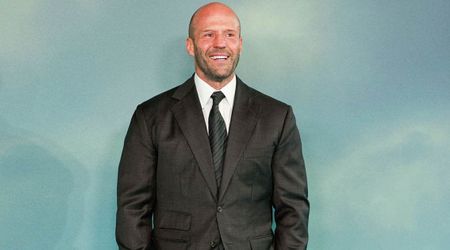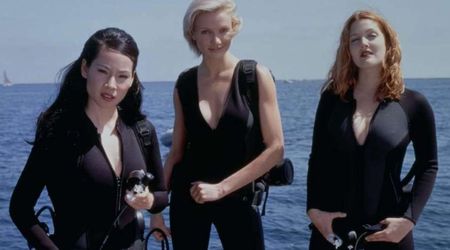Netflix's ‘Blackpink: Light Up the Sky’ spills secrets and shows unfiltered side of K-pop's biggest all-girl band

The much-awaited and the much-discussed Netflix documentary on all-girl K-pop’s band Blackpink is finally here. The 1-hour-19-minute documentary film titled ‘Blackpink: Light Up the Sky’ opens with a room full of bloggers and journalists all keeping their eyes on the newbies Jisoo, Jennie, Rose and Lisa at their announcement event back in 2016. Cut to 2019, the timeline which the feature-length film shows, Blackpink emerges as the biggest all-girl K-pop band in seven years. The four members are enveloped with the unstoppable paparazzi lights on one side and their fans known as Blinks waiting for hours just to see their idol’s bright and smiling faces on the other side along with interviews at Hollywood channels and talk shows, memorable performances at the award shows and taking home the coveted awards, all of this will give you an adrenaline rush in the very first two minutes of the brand new documentary. And then, it all goes calm as if a Tsunami has just passed through.
The documentary helmed by Caroline Suh goes deep with each of Blackpink’s four members i.e. Jisoo, the whip-smart big sister of the group with a quirky sense of humor, Jennie, the rapper whose fierce on-stage persona contrasts with her soft-spoken nature, Rose, the dulcet-voiced Australian coming into her own as a singer-songwriter and Lisa, the dancing queen whose spark plug personality never fails to make her bandmates laugh. The docu-film sheds light on their bond, their friendship, their love for each other, what they observe, how they perceive things and how they balance it all with the unending studio sessions, exhausting dance rehearsals, and how they have got used to all this because before Blackpink came into existence and before they tasted the mainstream success, all the members gruesomely trained for five years.

At one point in the documentary, all the Blackpink members are watching their Coachella debut (2019) and while pointing out their own mistakes, Jennie says, “I missed my ‘eh’ at one place’ to which others quipped, “See, this is why we can’t watch our own footage. But this is what we wanted. This is it. This is it.” What we loved about the documentary is that it takes all the members into the spotlight giving each one their different sections and shows their individual journey towards fame and success. The members share their stories against the backdrop of home videos and early competition footage. Each member reflects on the ups and downs of fame and the long, often challenging journey that brought them to worldwide success. ‘Blackpink: Light Up the Sky’ reveals the relatable, unfiltered sides of the foursome, who continue to be a leading force in expanding K-pop’s popularity, proving that music knows no borders or language barriers.
Jennie, at one point in the docu-film, gives us a little hint on how exhausting fame and success can be. While working with a trainer at a gym, she asserts, “I am always aching after tour and stuff. I feel like, out of all the members, I am always sick (laughs). You know, some days, just like every other human being, you feel extra happy and some other days, you are feeling down. I love rapping and singing but we always have to be on stage looking perfect and performing the same thing. It’s like working out two hours every day and it never gets easy. Gets harder, actually, as you age.”

As the documentary nears the end, a major chunk is dedicated to their on-stage performances, the backstage anxiety of the members, the rigorous dance routines, and non-stop flights to places across the world where they performed. ‘Blackpink: Light Up the Sky’ ends with Jisoo, Jennie, Rose and Lisa predicting and planning their uncertain future and where will they all be after 20 years.
In a nutshell, ‘Blackpink: Light Up the Sky’ is an intimate look at the biggest all-girl K-pop band which should not be missed. The documentary will stream on Netflix on October 14, 2020. You can also catch up with the trailer of the documentary right here:










